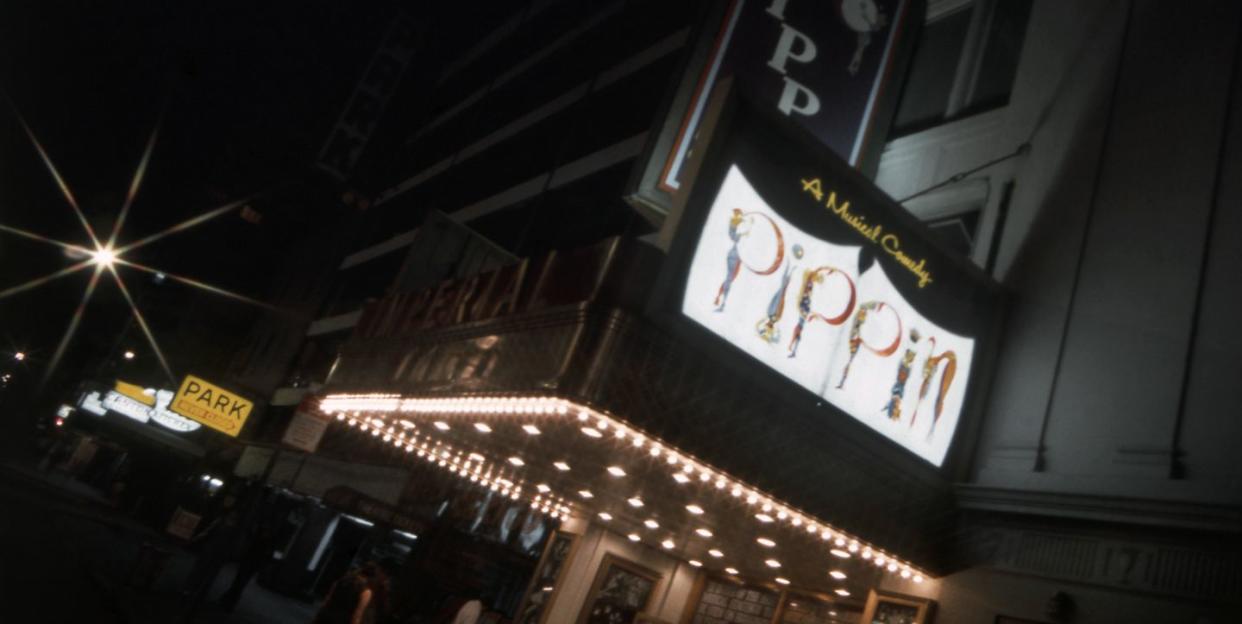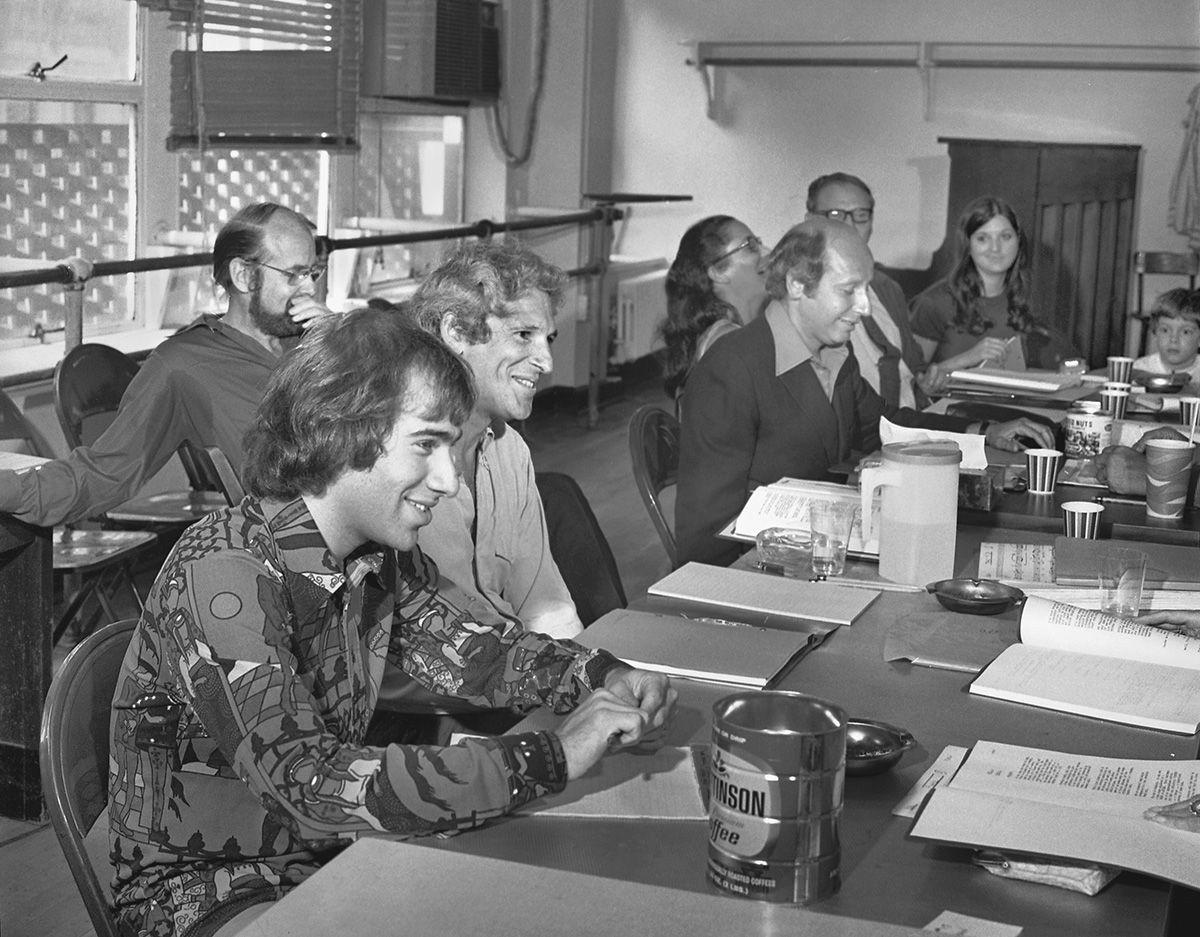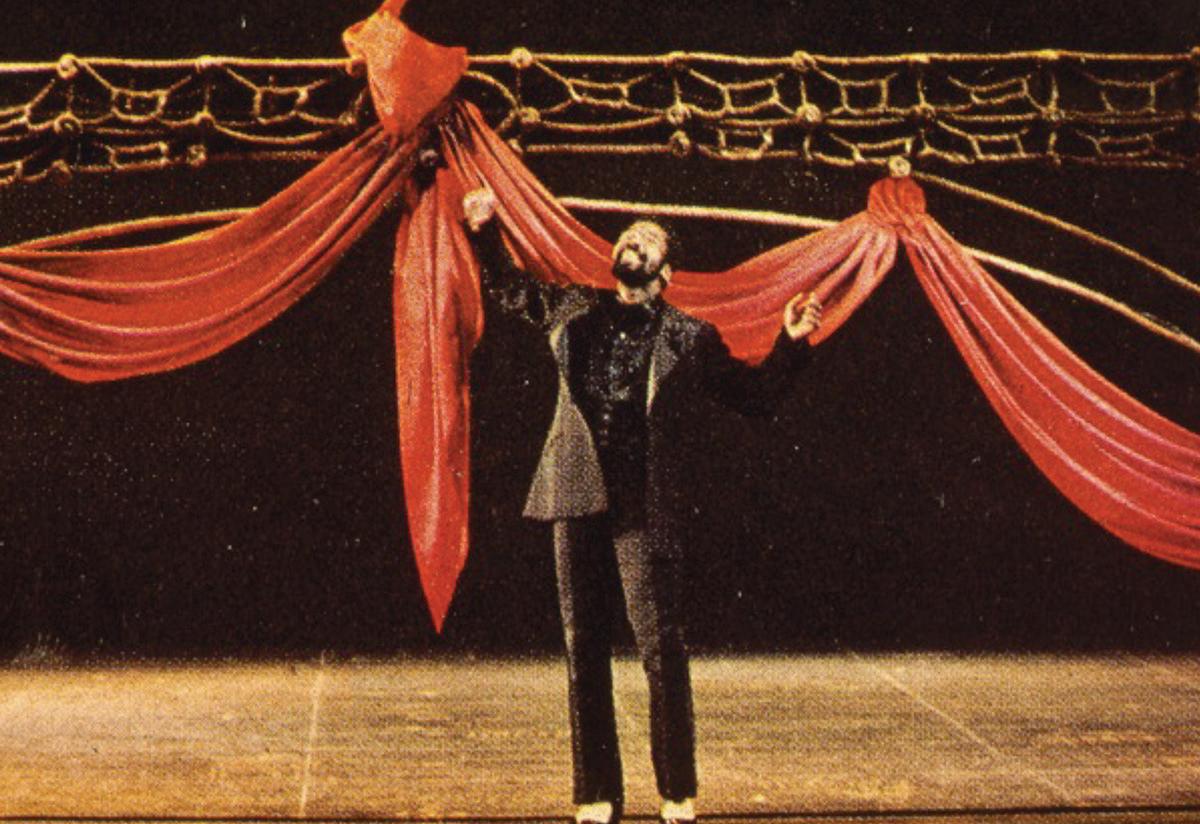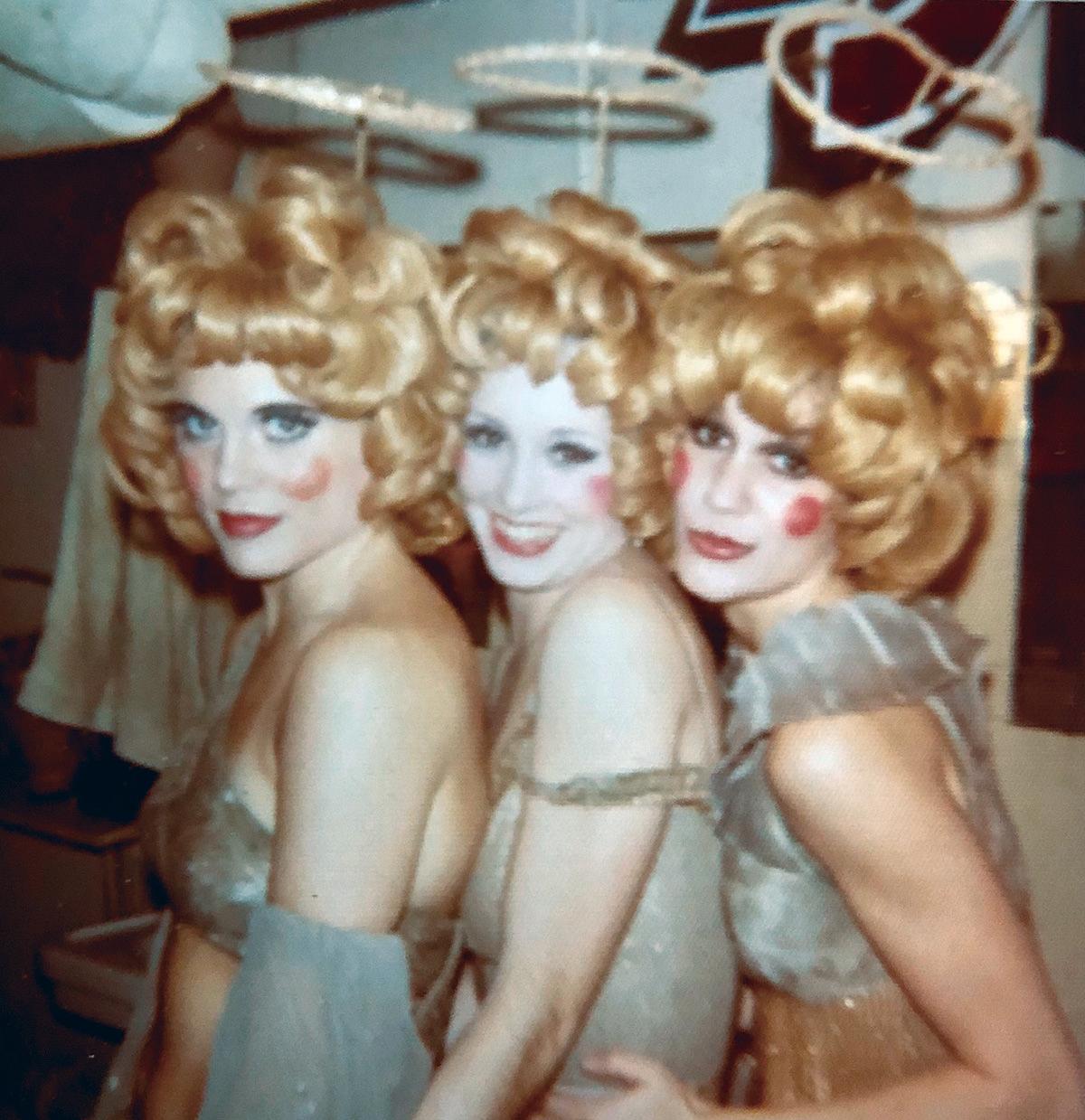The Secret Story of How Pippin Became a Broadway Legend

The cover of Life magazine’s November 17, 1972 issue showed a close-up of Richard Nixon’s seemingly grimacing face, accompanied by the headline, “The Big Win: What will Nixon do with it?” The president had just handily earned a second term, scoring 520 electoral votes to George McGovern’s 17, but in this photo, at least, he didn’t look like the cat who got the cream. The inside story, an analysis of the victory, referred only fleetingly to “the Watergate bugging case and the related charges of political espionage,” by then prominent news stories that would bring some of Nixon’s closest associates to trial before a Senate committee early the following year. But Vietnam got more notice from the article’s author, Hugh Sidey, who asserted that the war “must be ended”—a blunt statement coming from an establishment publication, but hardly a shocking one more than four years after Walter Cronkite had declared the war “mired in stalemate.”
That issue of Life, incidentally, also included a feature on Broadway’s latest hit show, perkily titled “Holy Roman Razzmatazz: A Happy Reign for ‘Pippin.’” A lavish photo spread reveling in Patricia Zipprodt’s eclectic, provocative costumes—and the equally ogle-worthy dancers who wore them—was accompanied at one point by the caption, “A boo for war, a boost for sex.” The short article itself was practically an ad for the show, though it did contain this caveat: “Pippin’s songs and book are seldom more than routine crackerjack. But the whole box is so packed with eye-popping theatrical prizes, including several fine performances, that Pippin is assured of a long, happy reign.”

It's doubtful that Stephen Schwartz or even Roger Hirson, despite his readiness to make concessions to Bob Fosse, found gratification in how the piece promoted their show: as a superior but glib entertainment—a triumph of “razzmatazz” over substance for an audience in need of distraction from the sobering events addressed in the magazine’s cover story. Perception had been moving in this direction, of course, since Stuart Ostrow first handed Fosse a copy of the libretto, and as Pippin moved into the Imperial Theatre for its final rehearsals and first Broadway previews, there was no indication that the pattern would reverse course. The Leading Player and his minions continued to disrupt the music and the drama with jazzy little interjections and mocking commentary. Charles acquired a grandiloquent speech defending his tyranny to his son, delivered shortly before Pippin kills him but deflated by this exchange:
LEADING PLAYER: God, that was beautiful, Charles. CHARLES: Oh, did you like it? LEADING PLAYER: I loved it. CHARLES: Oh, thank you so much.
Later, while directing Catherine, the misfit Player, to read a line differently, the Leading Player got to snort, “Jesus. Actresses.” And in the final scene, where Pippin’s foil urged him not to let the crowd down by chickening out of self-destruction, the line got extended to, “Hey you’re not going to disappoint all these people at . . . dollars a seat?” (The amount isn’t listed in the opening-night script, though presumably it would look like pocket change compared to the current price of a Broadway ticket.) Like Schwartz, Rubinstein didn’t know or doesn’t recall the source of these slightly hoary touches, but he does remember precisely when Fosse ruined the show’s ending—in his estimation—and why. In Pippin’s final moments, after the Leading Player has had the set torn down and the lights turned off and even gotten rid of the orchestra and Pippin and Catherine and Theo are shorn of all their showbiz accessories, the lovers were to engage in this brief question-and-answer session:
CATHERINE: Pippin . . . do you feel that you’ve compromised? PIPPIN: No. CATHERINE: Do you feel like a coward? PIPPIN: No. CATHERINE: How do you feel? . . . PIPPIN: Trapped . . . but happy . . . which isn’t too bad for the end of a musical comedy.

Ta-da! The audience would laugh after he said “Trapped,” Rubinstein recalls, “and I would wait, and then say those two words: ‘But happy.’ And the audience would go, ‘Ooooh’—like, yes! Because everybody feels trapped in their lives, to some degree, and when I would say those last words, the audience would feel relieved of all the cynicism they had just enjoyed so much. They would love it. It got huge laughs and applause in Washington and in New York.” About halfway through Pippin’s three weeks of preview performances at the Imperial, though, Fosse paid a visit to Rubinstein’s dressing room before the performance. “Bob comes in and says, ‘Hey, John? Cut ‘but happy.’ And I said to him, ‘What? Are you fucking out of your mind?’ And he told me he wasn’t going to have the New York critics call him a goddamn sentimentalist. I argued with him. I said, ‘No, the audience gets their unsentimental moment with “Trapped,” but then we save them, and we save Pippin—without getting mushy. That’s what the show is about; that’s where it’s leading us.’ And he just said, ‘Nah, it’s bullshit.’”
Roughly two hours later, Rubinstein faced Clayburgh onstage and began speaking his final line. “When I said, ‘Trapped,’ the audience screamed with laughter; the New York audience loved that even more than the Washington audience. Then I waited till the laughter died down, and like always, I lifted up their hands”—Clayburgh’s and Shane Nickerson’s—“and I said, ‘Which isn’t too bad for the end of a musical comedy. Ta-da!’ And the audience went”—Rubinstein makes a groaning sound. “Like someone had farted in their faces. And the curtain went down, and the applause was mild. When Bob came back to my dressing room after the show, I said, ‘You see? It ruined the end.’ And he said, ‘Nah, I love it. We’re keeping it.’”
Those two simple words—“but happy”—would figure heavily in Schwartz’s eventual decision to pursue the right to go back to the script with Hirson and make changes of their own. “Taking out ‘but happy’ was one of the ways Bob took the heart out of the show, which I think became colder as a result,” says Schwartz. But with opening night around the corner, Broadway audiences and critics would see the Pippin that had finally won Fosse’s approval.

The director had, with Stuart Ostrow, arranged a party for the cast after the first preview, at a restaurant attached to the Edison Hotel on West 46th Street. “We sat at circular tables,” Cheryl Clark remembers. “I think Gene Foote was at mine, with our great Irene Ryan, who was hysterical; she said, ‘Fuck the awards. Fuck the fame. Be in it for the money!’ There was little Granny, saying this! We all loved her so much.” There was a special performance the night before opening, Foote remembers, with several boldfaced names in attendance. “We scared Carol Channing to death! She was sitting in the fourth row, in the center, with these big glasses on. And there was a moment in the opening number called the ‘walking cross,’ where we talked to the audience, and Bob told me that on my third step he wanted me to throw my head back and start laughing hysterically, then go back to talking. And that scared her!”
When October 23 finally arrived, Rubinstein put whatever misgivings he had accumulated about Fosse’s choices aside. Before heading to the theater, the young actor sat down with a piece of Barbizon-Plaza Hotel stationery and wrote to his director,
"Dear Bob— Two hours now before we open—and aside from a nasty case of shaky legs, all I can really feel is a true affection and gratitude to you for all you’ve offered and given during the past three months. You are so brilliant and sensitive, and observant, and caring, and incisive, you make an actor want to do anything in his power to realize your visions. You have, apart from allowing me to be one of the rare people whose dreams actually come true, shown me so much, opened my mind (not just as an actor) and heart, and I feel honored and happy to be part of your great show. But even more, I feel terribly close to little Pippin, whom I gradually have come to believe to be not far from little Bob—and I feel in my heart that the three of us aren’t too far apart in spirit, and somehow there’s 'glory in the air' for us, and we’re leaping about there together. Thank you, Bob. Love always, John."
Excerpted from Magic To Do: Pippin's Fantastic, Fraught Journey to Broadway and Beyond, courtesy of Applause Books.
You Might Also Like
